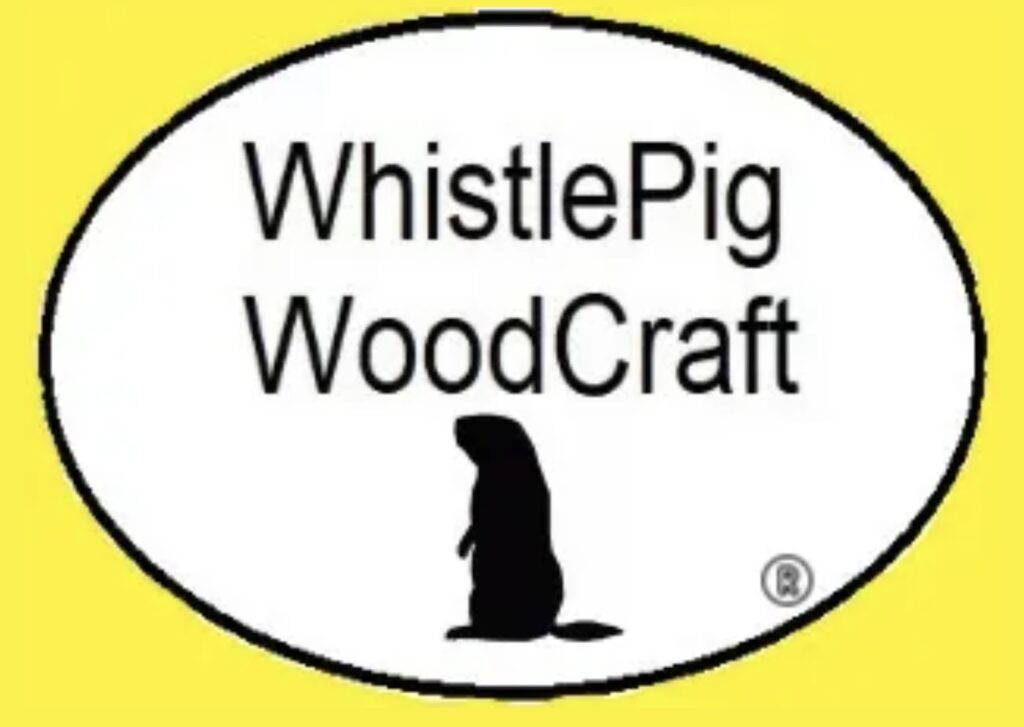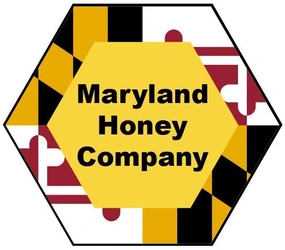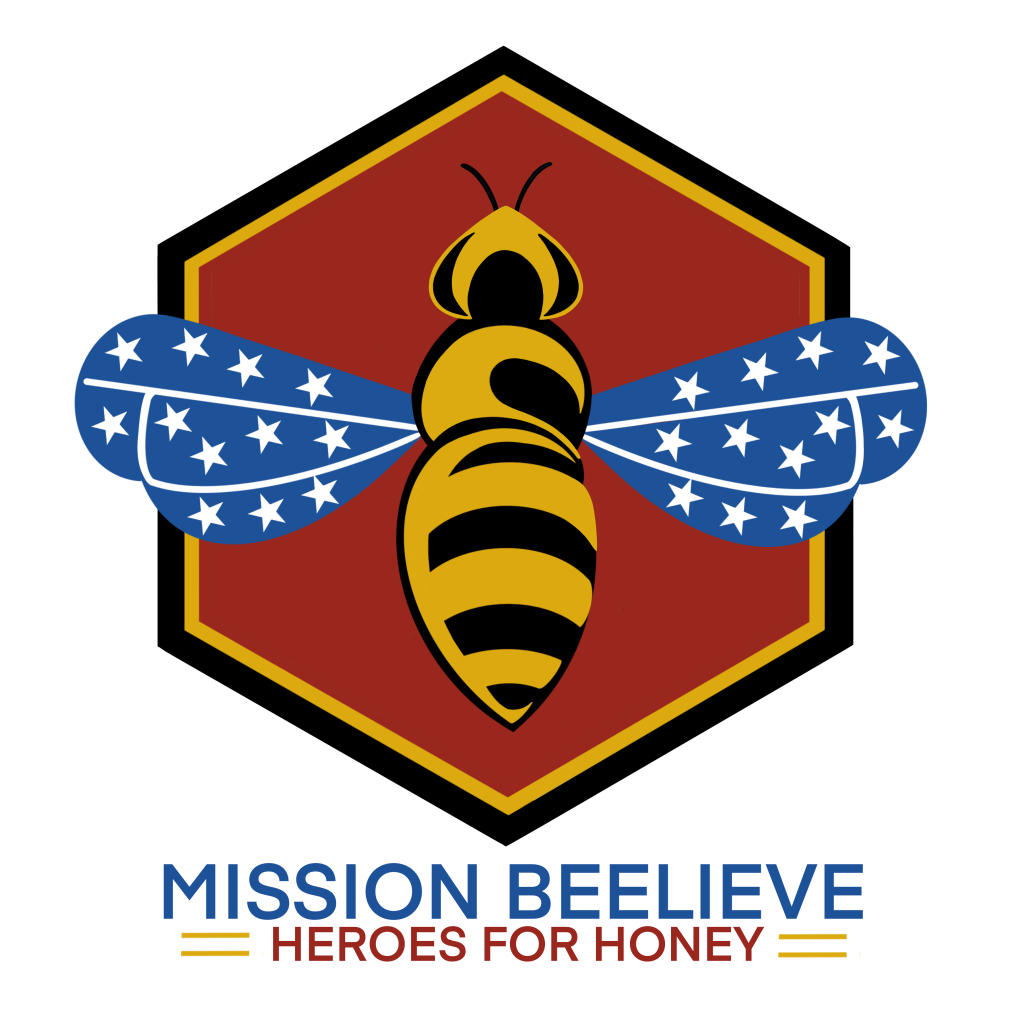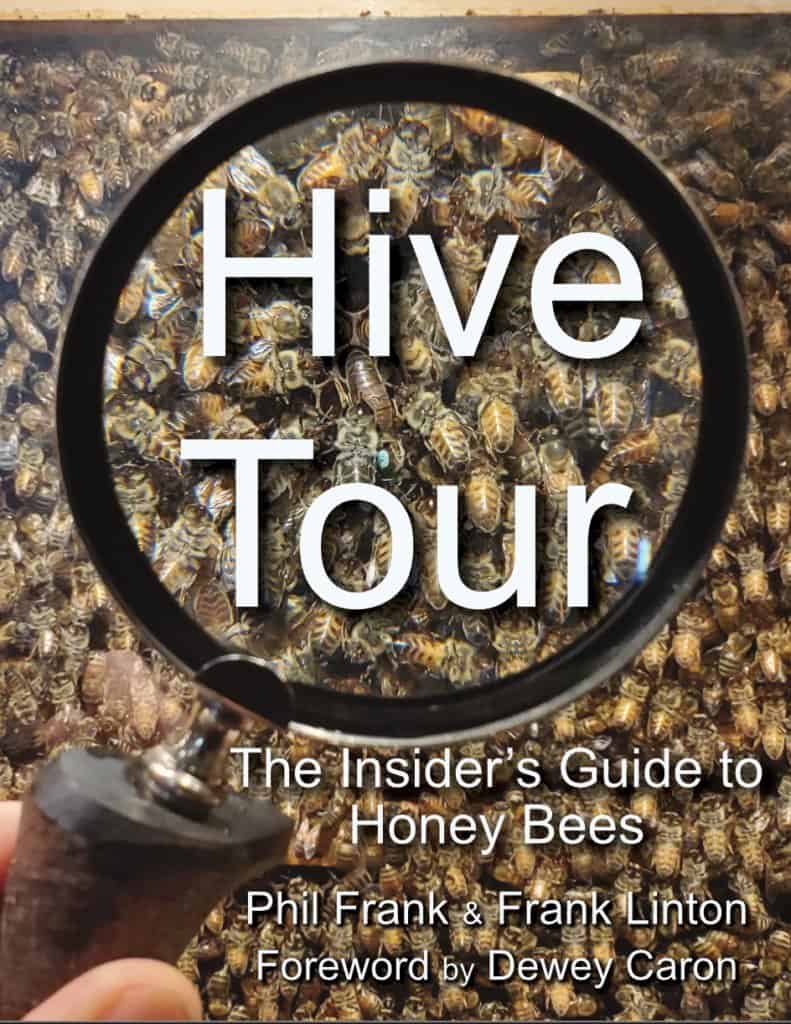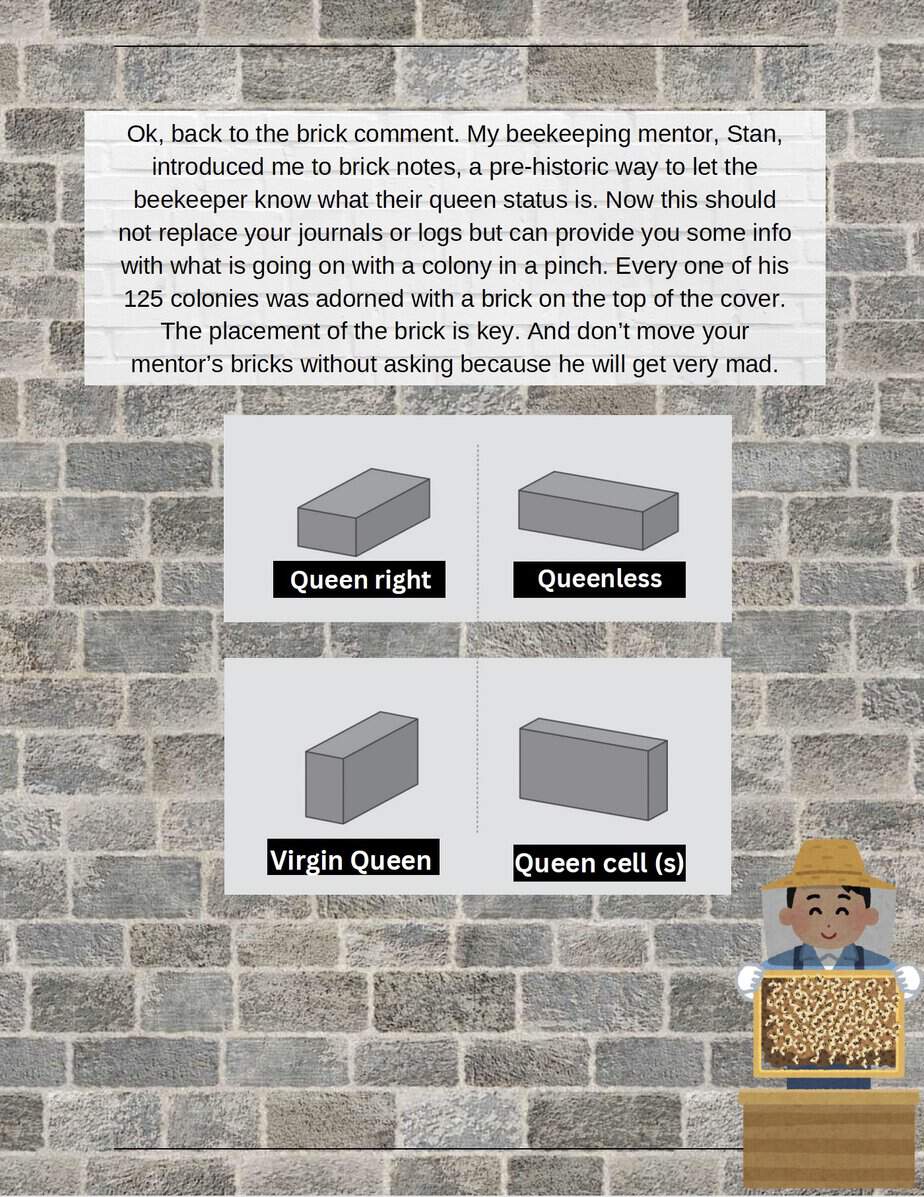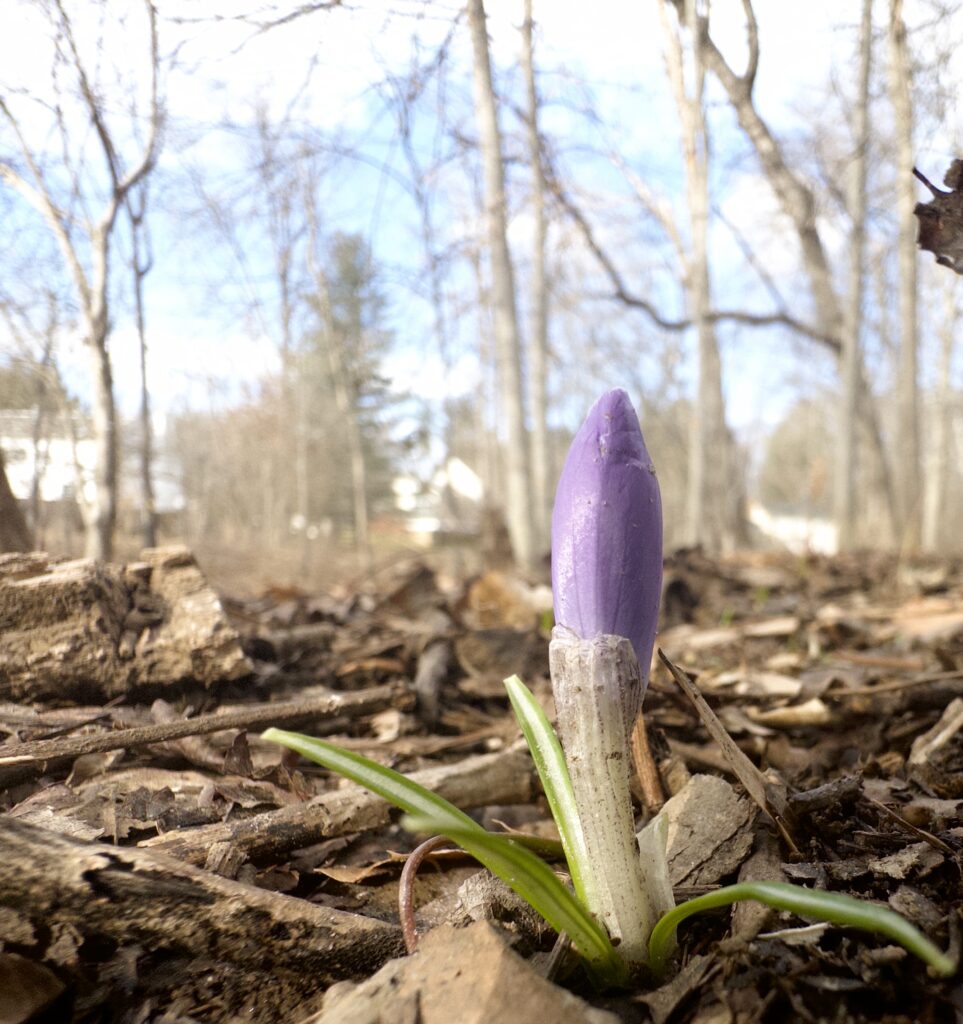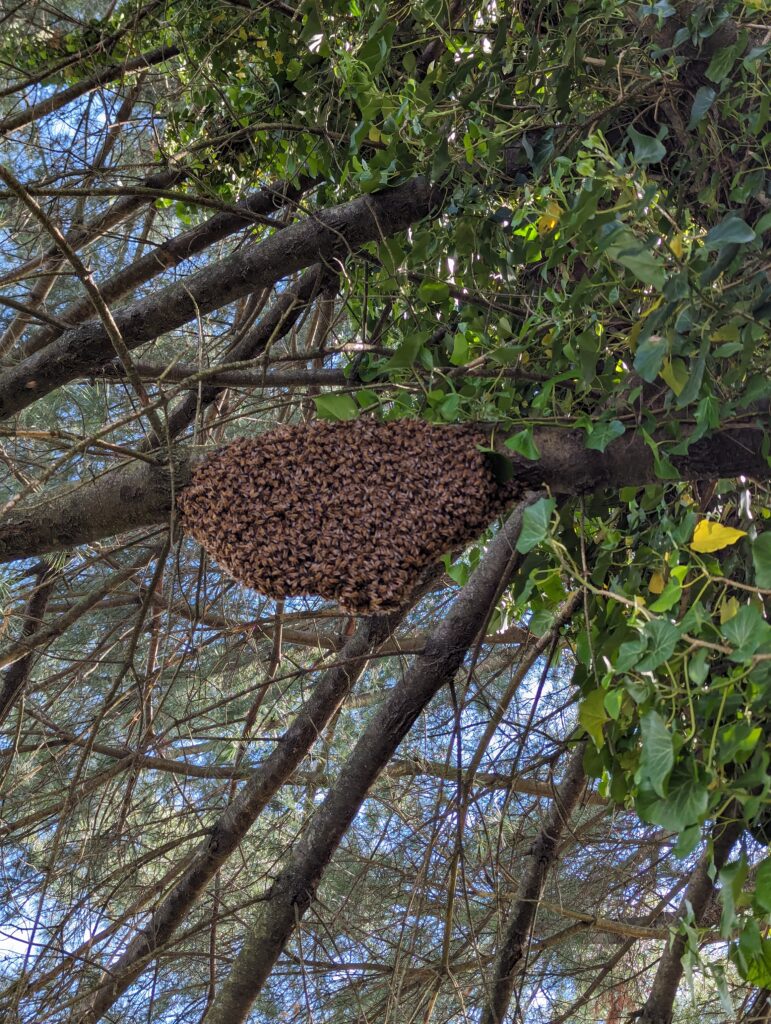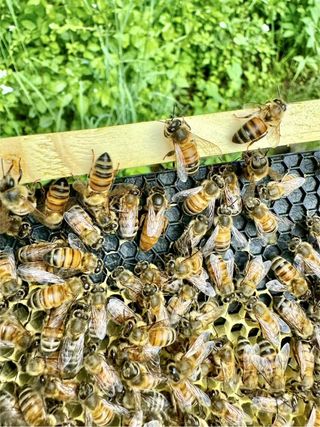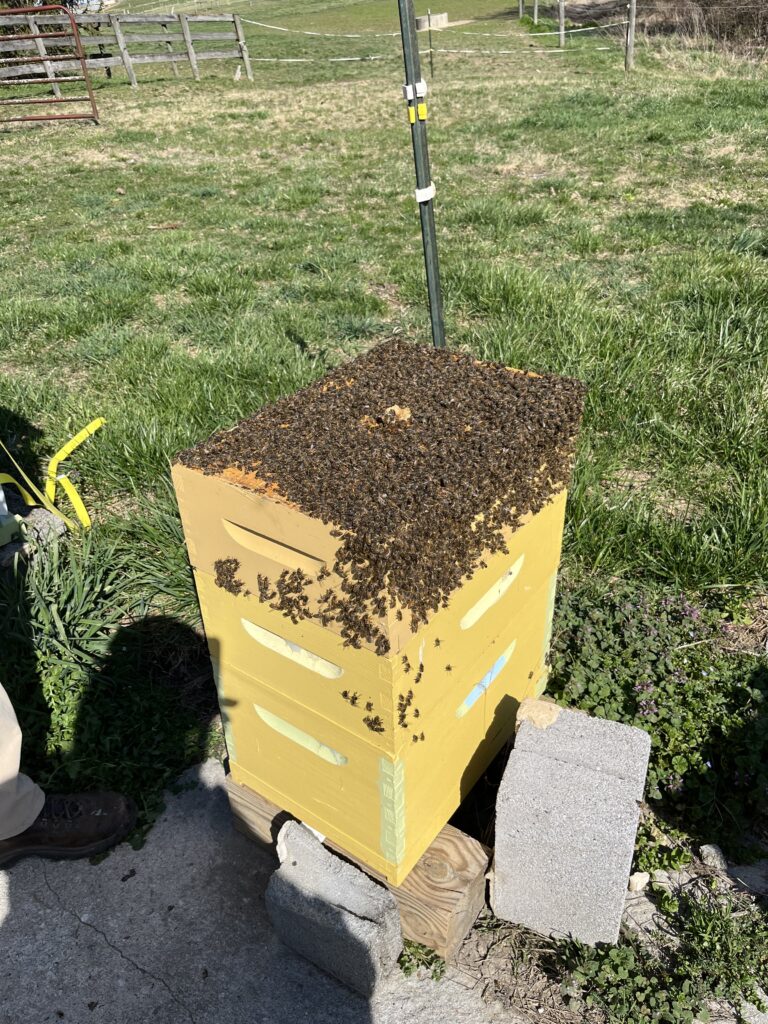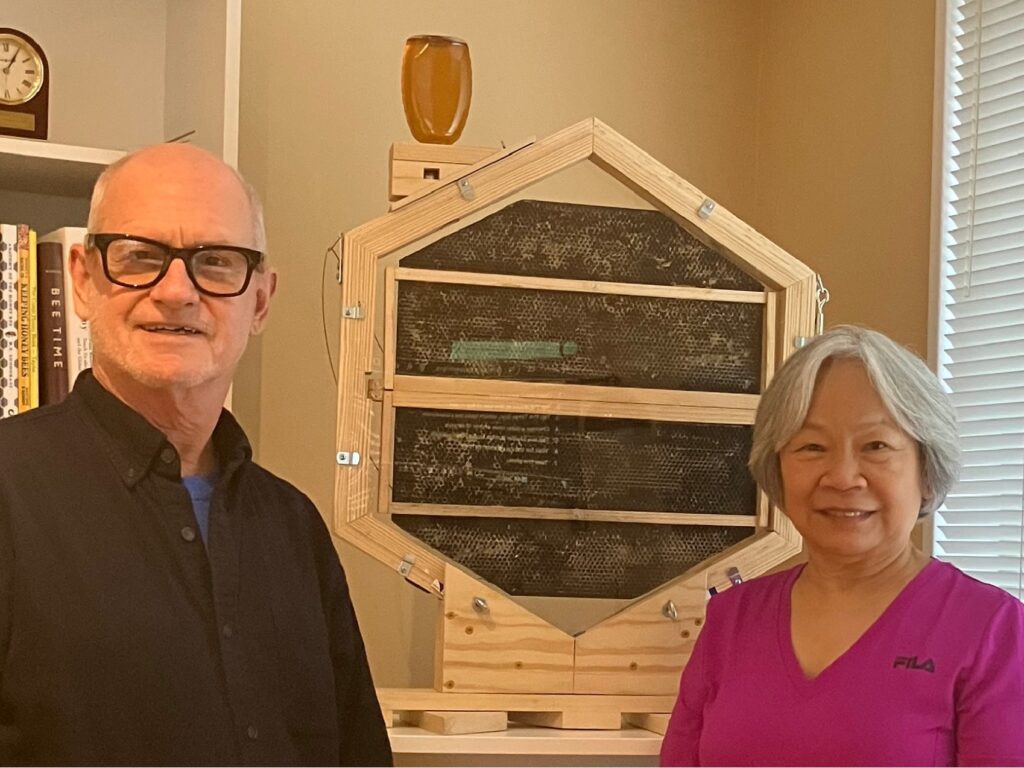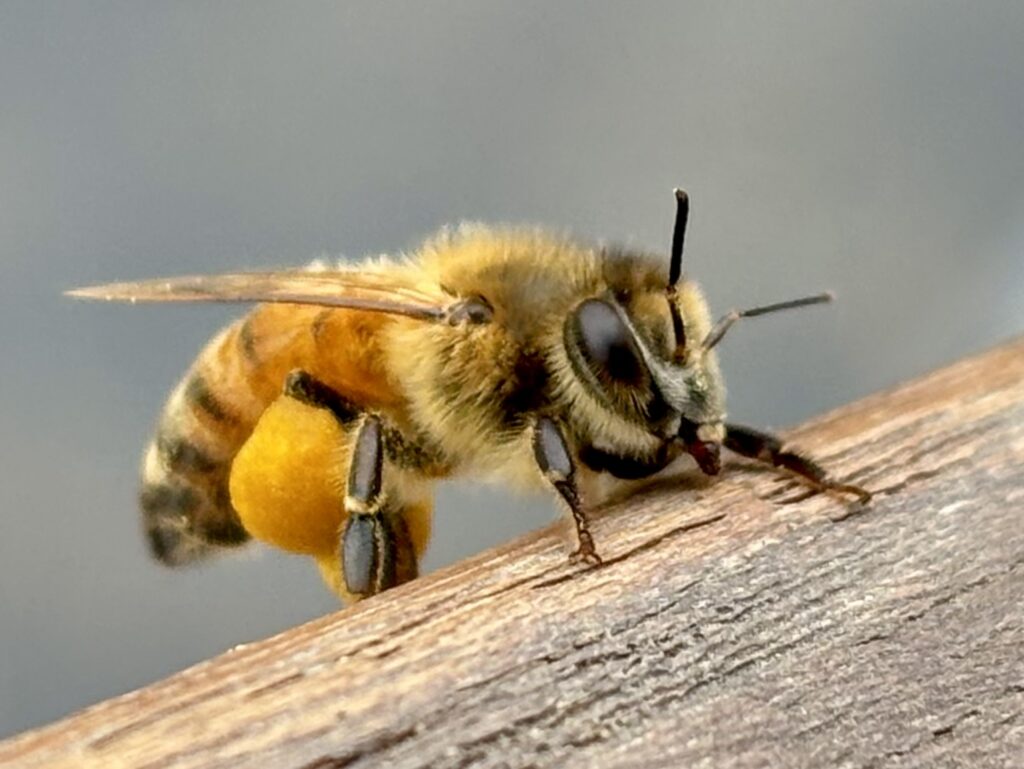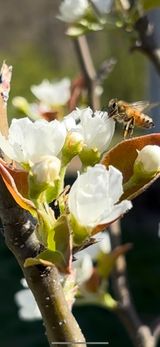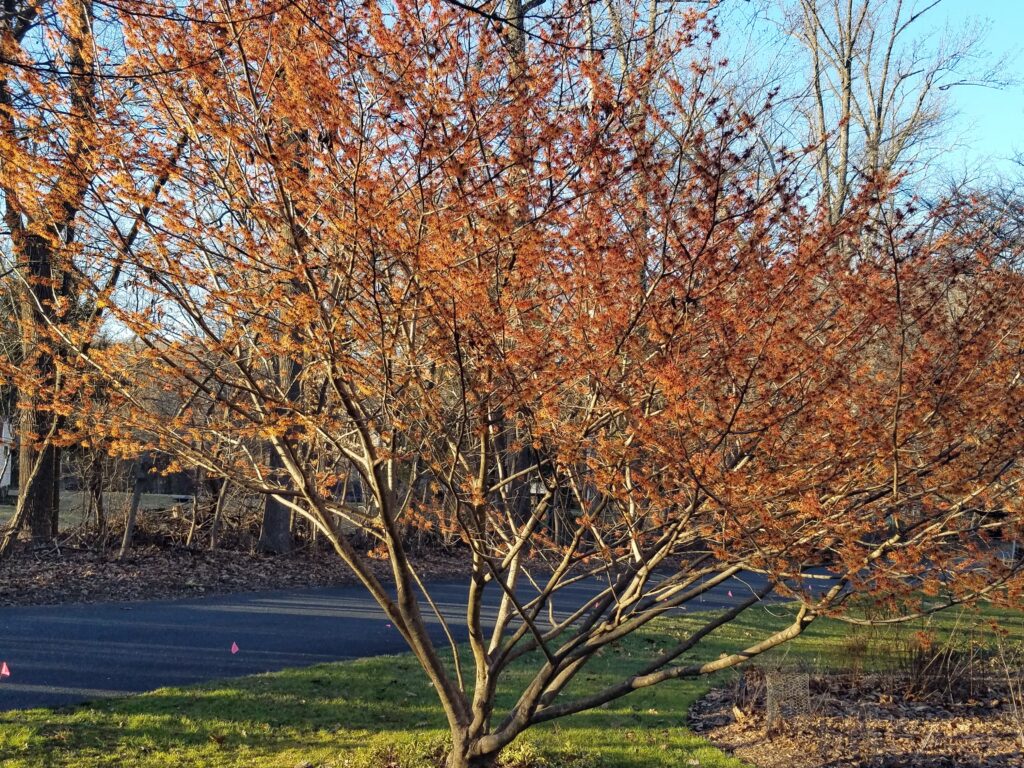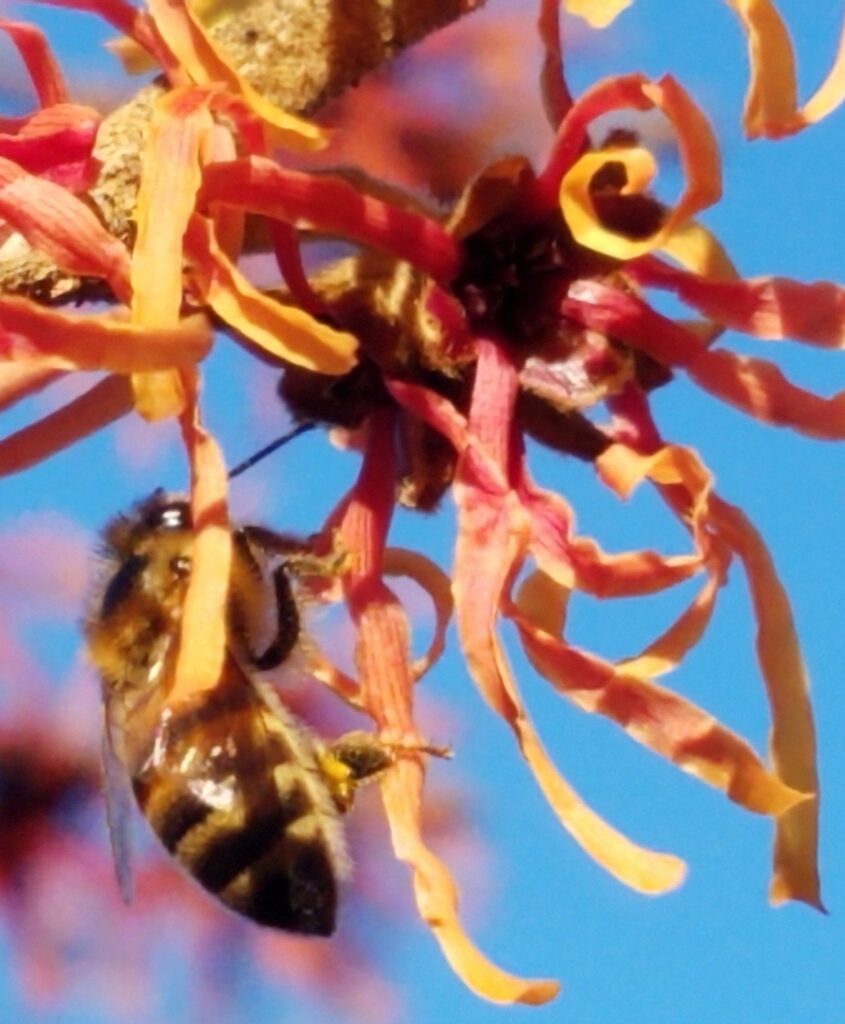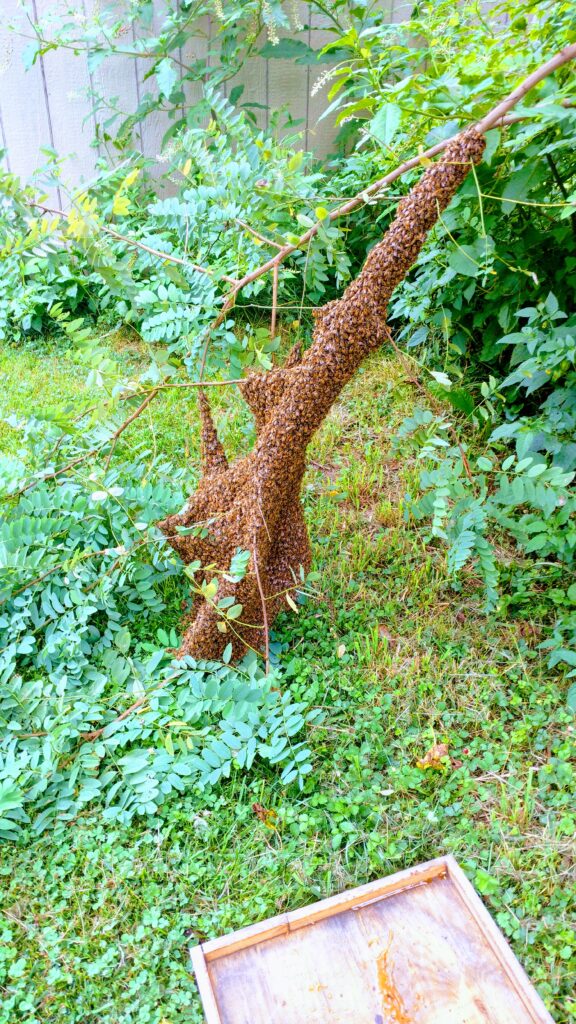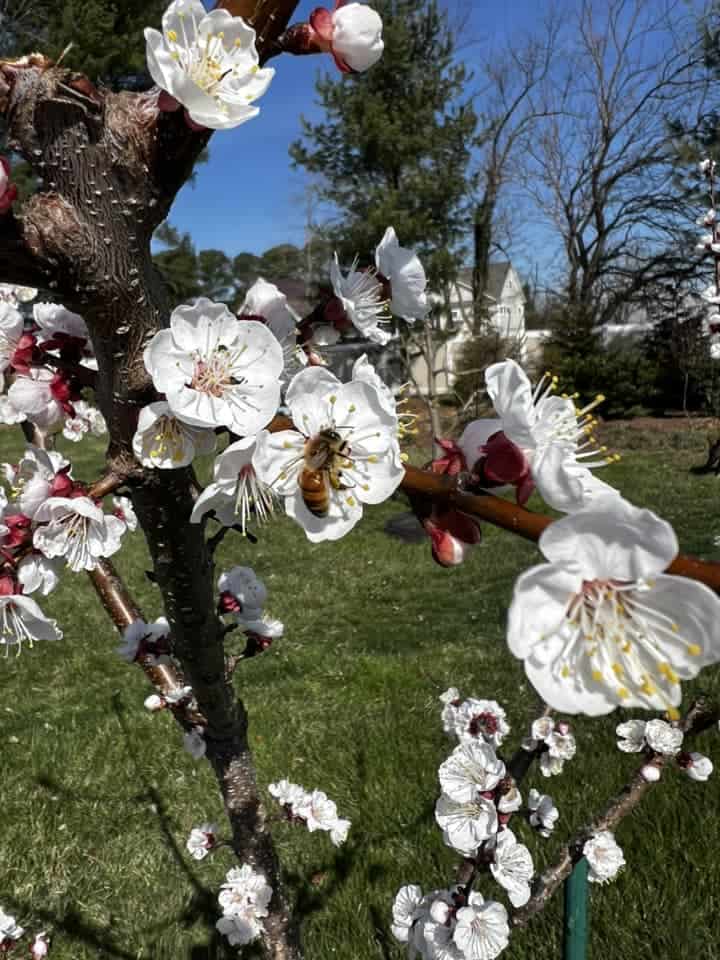
Printable edition
President's Message
- President’s Message, February 2025
by Mary Laura Fitzgerald
It is a new beekeeping year, and MSBA is proud to continue both offering its traditional agenda of meetings and classes, and to change things up a bit! Please consider taking a survey about MSBA meetings and how we can work better to meet your needs and expectations!
Our February 15 meeting will have a new format, with lunch on offer, and we are offering our first Beeswax Workshop on March 8. Our honey show champion beekeepers are also continuing to stock our website with recipes using local honey! If you haven't already, this is also a good time to register your colonies for the 2025 season, and consider a donation to the Apiary Inspection Fund.
Spring is soon springing, even though it hasn’t felt like it these past few weeks! We’ve been getting the odd warmish day here and there to assess the hives, and I’m hoping that yours have made it through so far!
Sadly, it appears to have been a bad year for honey bee survival overall. The annual U.S. Beekeeping Survey indicates the highest colony losses since the 2010-11 beekeeping season (14 years!) when colony loss rates were first determined.
A team that includes Project Apis m and several USDA Bee Labs, American Beekeeping Federation, and the American Honey Producers Association, extension programs and beekeepers has been working to figure out exactly what is causing these high losses.
I’m hoping they will have some useful findings from their work. In the meantime, we can get our bees through the upcoming starving months with supplemental feeding, and mite treatments when we have the opportunity.
Spring is a time of optimism and renewal, a new chance and a new beginning. Some of us may be starting from a sad point, and some lessons learned. Some may be listening to happy buzzing and planning for growth. But either way, spring will be here before you know it, and bees will be brightening your world again.
[Return to February 2025 Beeline newsletter]
Notes from the Apiary Inspector
- Notes from the Apiary Inspector
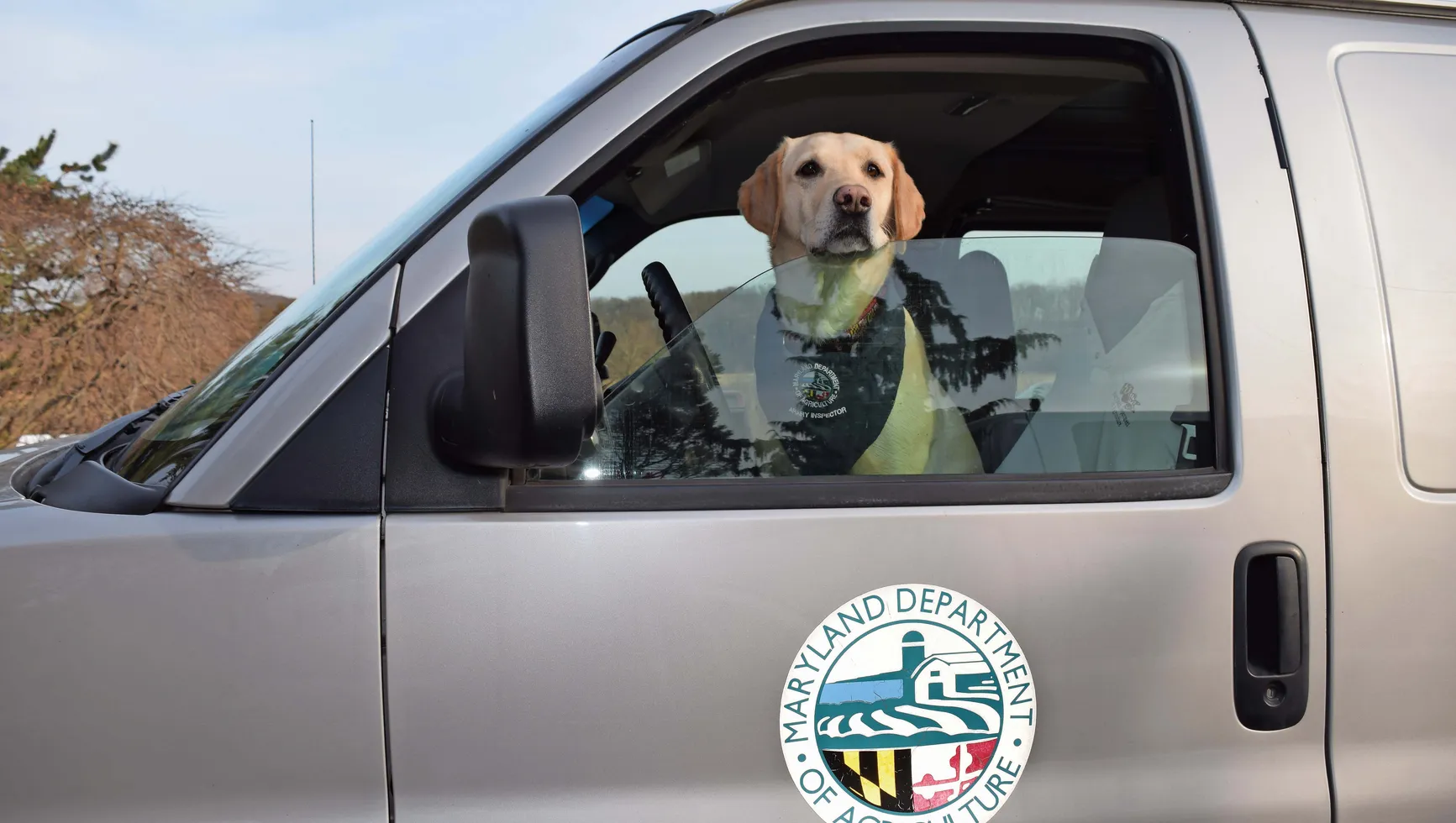
AFB Dogs and Cybil Maryland 2024 Statistics • Active beekeepers: 4,293 • Registered beekeepers: 2,623 (about 61%) • Beekeepers not registered: 1,670 (about 39%) • Apiaries: 3,234 • Colonies: 25,054 • Number of colonies inspected: 232 Apiary registration letters: The first letter and form was mailed out in December. If you have not done so, please register. A second mailing, weather permitting , will go out on 2/13/25.
Please send in or scan and email me your updated form. cybil.preston@maryland.gov
Winter 2024-2025: With the frigid temperatures –and prolonged cluster weather we have been having–I am hearing about and inspecting more dead outs than last year. The bees have had very few cleansing flight days!
Dead outs that I am seeing are winter clusters with heads in cells, some with NO food left and some WITH supers of honey above. Some have a smallish cluster left behind, leading me to think there could have been heavy die offs while the bees attempted cleansing flights. Other potential causes include, but might not be limited to:
- Nosema
- Trachea Mite
- Varroa/virus
Nucleus colony purchaser reminder: Please remember that if you are purchasing nucleus colonies from out of state you will need to have them inspected prior to them entering Maryland.
Nuc supplier reminder: Nucleus colony suppliers, please schedule your spring inspection. If nucs are made in Maryland and sold to an out of state beekeeper, they must be inspected before movement across state lines.
The beekeeper/nuc seller is responsible for finding out from the buyer where it is going. Every state has the same laws for the movement of bees into the state. Please contact me if you need to schedule a spring inspection.
Bee Check: If you wish to use the Bee Check voluntary mapping site, we must have a current registration form on file for you to access the free site.
National Honeybee Survey 2025: We will be participating in the National Honey Bee Survey again this year. I am looking for volunteers who would like to participate! To qualify, you must have 8 colonies in your apiary.
K-9 AFB inspections: Tukka was able to inspect Maryland hives leaving for California: 2,800 were inspected in November and December.
Varroa mite control: Please remember when you are choosing your varroa control that label is law, and only approved products are allowable for use in your colonies. If you are choosing to use oxalic acid, the products allowable for use are Api-Bioxal, EZ-OX, VarroxSan. You have your choice of powder, tablets or extended-release strips! Your own concoctions of wood bleach and shop towels or Swedish sponges are illegal, and should not be used in your colonies.
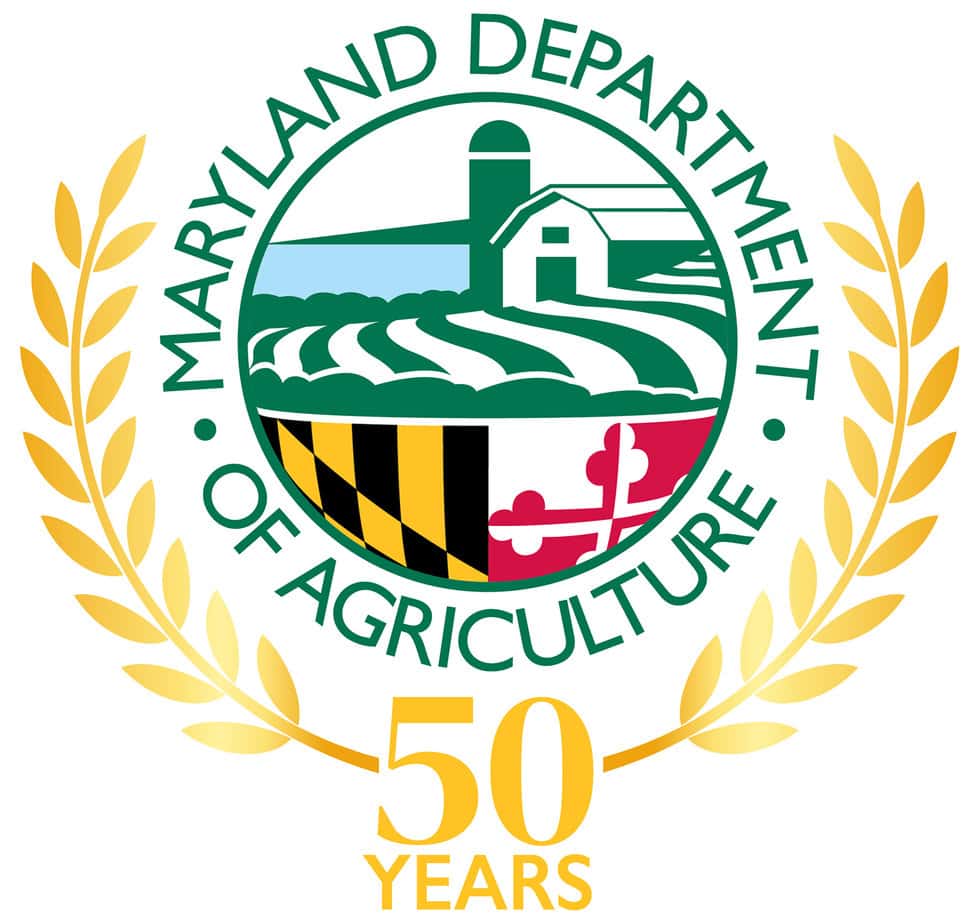
Cybil Preston
Chief Apiary Inspector
State Apiarist
EAS Certified Master Beekeeper
Certified Maryland Honey Judge
Maryland Department of Agriculture
50 Harry S. Truman Parkway
Annapolis, Maryland 21401
cybil.preston@maryland.gov
(410) 841-5920(O)
(410) 562-3464 (M)
Website[Return to February 2025 Beeline newsletter]
February 15 Meeting
- 2025 February 15 MEETINGScroll Up
View Recording & Transcripts Here
You must be logged in to view members' only materials.
Please login and return to this page. Thanks!Join in-person or via Zoom
Alyssa Crittenden, is the nutritional anthropologist highlighted in Thor Hansons book, Buzz, The Nature and Necessity of Bees. Learn about honey hunters in Tanzania!
Danielle Downey, is the Executive Director, Project Apis m. Learn about the organization that is championing bees around the world!
David Schultz, EAS Master Beekeeper. Learn “Honey Bee Navigation, The Miracle and Mystery of Honey Bee Flight”
Cybil Preston "Maryland's Apiary Inspector's Report". Learn the current bee situation in our area.
VENDOR: Mission Beelieve will have an informational vendor table
VENDOR: Maryland Honey Company will have a vendor table to order nucs and packages
VENDOR: WhistlePig Woodcraft: Lots of woodenware for sale at the meeting: PLUS Pre-order NOW to save yourself a trip to Taneytown.
T-Shirts! Buy MSBA T-Shirts at the meeting and save on postage!
LOGISTICS / Zoom
LOCATION UMBC University of Maryland Baltimore County (link to directions and also a campus map ADDRESS 1000 Hilltop Circle, Baltimore, MD 21250. Parking is free, and there will be signage from the lot to the meeting in the Interdisciplinary Life Sciences Building CLICK for GPS to BUILDING. BUILDING Interdisciplinary Life Sciences Building. 116A ROOM Atrium, just inside first floor entrance to building DAY February 15, 2025 TIME 9AM - 2PM (Doors open at 8 :30 AM) ZOOM CLICK HERE when it's time to join the meeting via ZOOM AGENDA
WHEN WHAT WHO 8:30 Doors Open / Coffee 9:00 Opening and Welcome Mary Laura Fitzgerald
MSBA President9:15 Apiary Inspector Report Cybil Preston
MD State Apiarist9:35 "Honey Bee Navigation, The Miracle and Mystery of Honey Bee Flight” David S. Schultz
MSBA VP
Master Beekeeper10:30 Break 10:45 Project Apis M Danielle Downing
Executive Director, Project Apis m11:45 Lunch, LEARN, & Connect - Pizza, Salads, water provided by MSBA
“Honey Hunters to Hive Keepers”Alyssa Crittenden
Anthropologist and Human Biologist12:40 DOOR PRIZE! $25 Gift Certificate to Lappe's Bee Supply! 12:45 Treasurer's Financial Report / ABF Report Lisa Marie Ghezzi
MSBA Treasurer1:00 “Honey, Hunter - Gatherers, and the Hadzabe Tribe” Alyssa Crittenden
Anthropologist and Human Biologist2:05 Meeting Adjourned LECTURE TOPICS
Honey Bee Navigation, The Miracle and Mystery of Honey Bee Flight - David Schultz
We will explore the amazing and mysterious skills that the Honey Bee uses to navigate for the survival of her colony. We will discuss the experiments that were designed to clear up these mysteries and will also discuss the fascinating abilities that evolution has bestowed on her. Join this magical journey into the wonderous capabilities of man’s best partner. - Presented by David SchultzHoney Hunters to Hive Keepers: the Role of Honey Bees in Human History - Alyssa Crittenden
Human beings across time and space have had a profound and enduring relationship with bees and their byproducts. Here, I delve into an array of early evidence of honey hunting, revealing how humans first harvested this natural sweetener from wild bee colonies and the pivotal role it played in prehistoric diets and survival. It will examine honey’s transition from a scarce, foraged resource to a cultivated product through the advent of beekeeping. We will consider honey’s cultural and symbolic significance, from its use in ancient rituals and medicine to its status as a sacred and healing substance in various traditions. By connecting the dots between honey's biological, ecological, and historical impacts, this presentation underscores how humanity’s partnership with bees has shaped diets, economies, and cultures throughout history.
Honey, Hunter-Gatherers, and the Hadzabe Tribe - Alyssa Crittenden
Honey and bee larvae are a critically important food for hunting and gathering communities all around the world (in ecosystems where they are available). This is particularly true for the Hadzabe foragers of Northern Tanzania - who have a long and extensive history with honey (from both stinging and stingless bees) as well as the greater honeyguide bird (Indicator indicator), who lead honey hunters to their spoils. We will explore the important role of honey in the diet of communities worldwide, focusing on the Hadzabe as a key example. We will discuss how it is collected, stored, and shared and end our discussion with a look to the future. Exploring how climate change is currently impacting access to this valued resource.
Project Apis m., the Industry's Best Kept Secret - Danielle Downey, Exec. Director, Project Apis m.
Led by a board of commercial beekeepers, since 2007 PAm has put over $13M into over 200 applied research projects and resources for beekeepers, $1.3M into scholarships for 21 graduate students, and another $4M to create over 103,000 acres of nutritious bee forage on the landscape. This year PAm is highlighting projects on emerging threats - like the Tropilaelaps mite that has not yet arrived in North America, and the Yellow Legged Hornet that was found in Georgia then spread to North Carolina. Come hear about PAm, and learn to recognize these invasive bee world baddies so you're on the lookout for them should they arrive in your apiaries. https://www.projectapism.org/aboutBIOGRAPHIES

Dr. Alyssa Crittenden is an anthropologist and human biologist whose work explores the fascinating connections between diet, culture, and human evolution. A professor at the University of Nevada, Las Vegas, she has spent 20 years working with and among the Hadzabe (or Hadza), one of the last remaining hunter-gatherer communities in the world. Her research has uncovered insights into the role of honey in human history and highlights how honey has shaped human evolution, nutrition, and social behaviors over millennia.
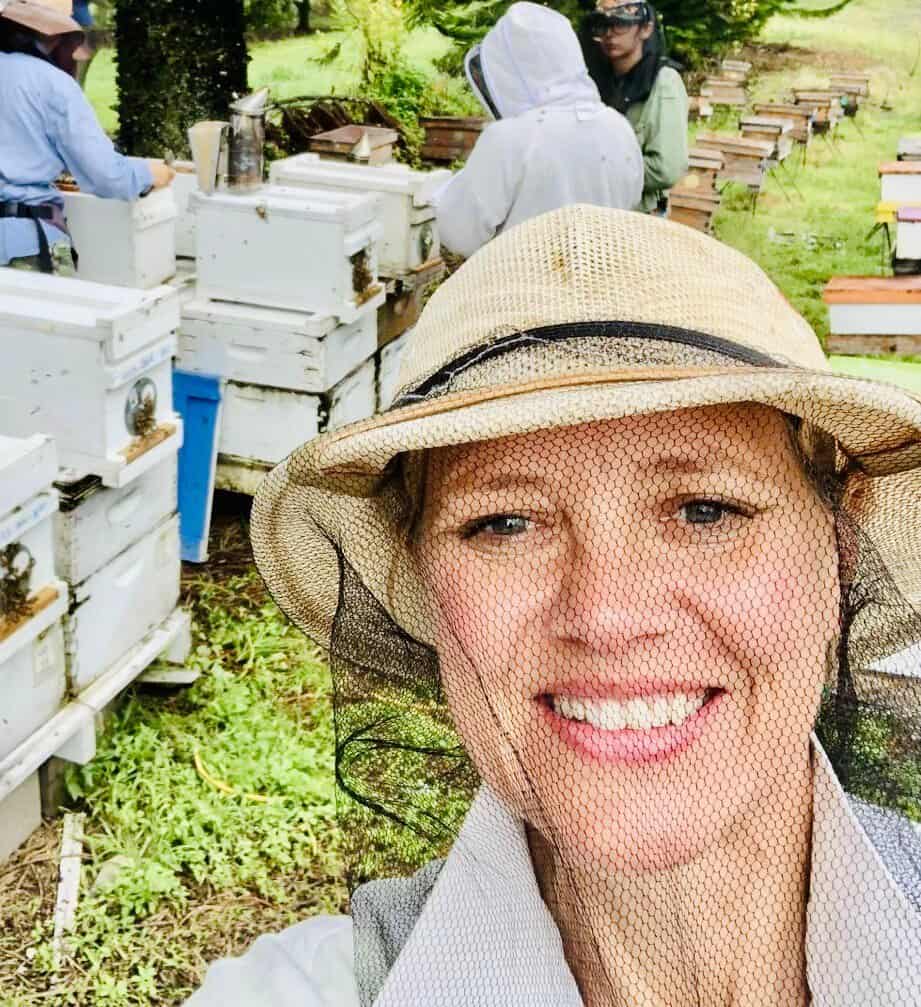
Danielle Downey began working with honey bees over 30 years ago, including training and research from bee labs in Minnesota, Canada and France, beekeeper education, work with commercial beekeepers and queen breeders, regulatory work as a State Apiarist in Utah and Hawaii, and wrangling bees for TV and film. She has also worked on breeding Varroa resistant bees in Hawaii for over a decade. As the Executive Director of Project Apis m., a nonprofit that funds applied honey bee research, she works closely with many industry stakeholders in the USA and Canada.
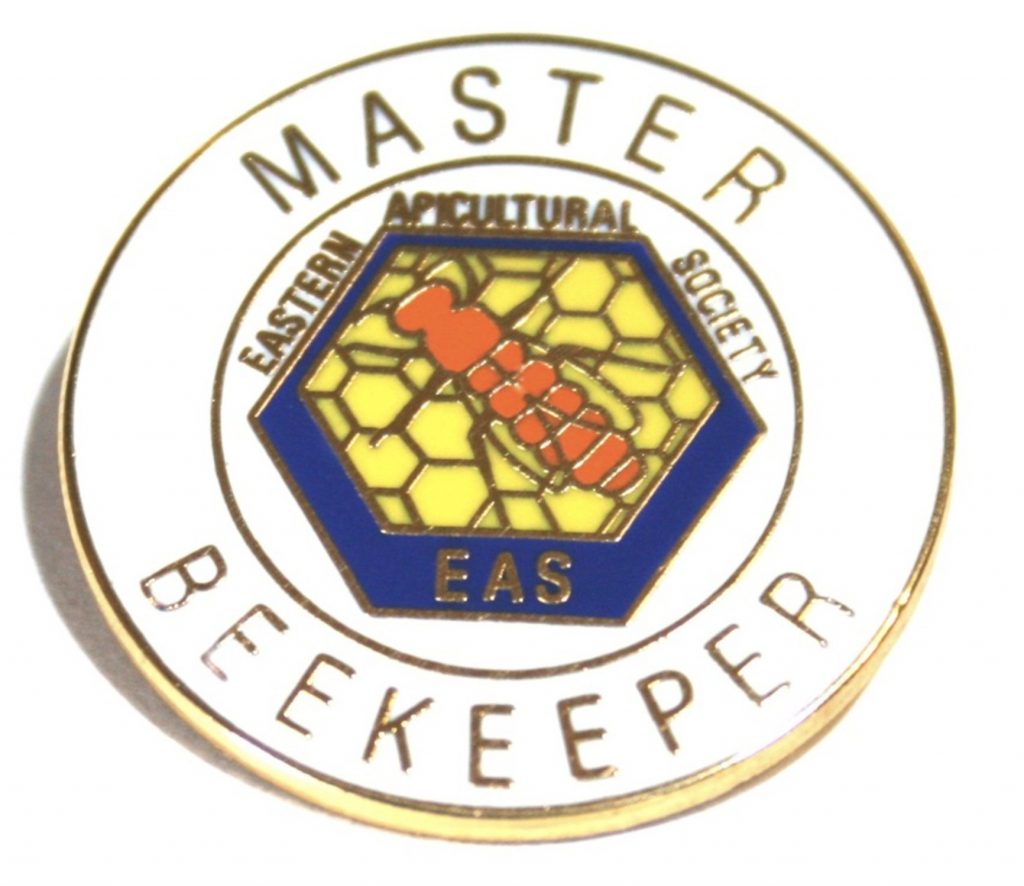
David Schultz took two beginner beekeeping courses in 2014 and began keeping bees that same year. In 2018 David became the VP for HCBA and in 2019 became a candidate and began his exams for the EAS Master Beekeeper program. After serving as HCBA President for 2 years, he is currently the past President of HCBA and is the current 1 st VP for the Maryland State Beekeepers Association (MSBA). In 2021 David was awarded the George W. Imirie award for Excellence in Beekeeping Education by the Maryland State Beekeepers Association. In the
spring of 2022 he became an apiary inspector for the Maryland Department of Agriculture. David became an EAS Certified Master Beekeeper in the summer of 2022.Important: Meeting Directions, Parking, Format
- Important! New meeting format, directions, parking
We are trying some new ideas: A shorter, fuller day
MSBA is trying a new meeting format on February 15: we are ending earlier, offering a "working lunch," and asking you to participate in a survey about future meetings.
The February 2025 meeting will start at 9:00 AM and end at 2:00 PM, with one keynote lecture offered over lunch with complimentary pizza and salads. The meeting will be available via Zoom, as well. We are also working on our coffee and snack offerings.
Our goal is to respect beekeeper time, encourage attendance, and deliver beekeeper education in the most effective, efficient manner. Three vendors will be present, including Whistle Pig Woodcraft, which is taking pre-orders for meeting delivery.
About the February 2025 location
We are once again at a top-tier, modern space in the Interdisciplinary Life Sciences Building at UMBC, outside of Baltimore city, with free parking available. The nearest garage to the meeting is the Commons Parking And here is a link to Directions to UMBC.
[Return to February 2025 Beeline newsletter]
Survey: The Future of MSBA Meetings
- Survey: The Future of MSBA Meetings
Please consider taking the anonymous survey below: your input is crucial!
As a member of the MSBA community, you can help us understand how "to educate beekeepers and those interested in bee culture by presenting and discussing new ideas; and exchanging information, goods, and services" as our constitution and bylaws charge us to do. MSBA has historically done this through newsletters, meetings, and classes. Since the pandemic, however, beekeeping associations find that holding meetings is a guessing game: who will come? what is helpful? can digital sessions meet needs?
This survey is being sent to all Maryland State Beekeeping Association (MSBA) members to gather information about member preferences for the state-wide meetings we hold three times each year (February, June, and November). Thank you!
[Return to February 2025 Beeline newsletter]
Beeswax Workshop March 8: Members Only!
- Beeswax Workshop March 8, 2025: Creating Winning Entries and Products
by Valerie Wampler
Maryland beekeepers who are national champions in beeswax and a wide range of honey show entries are offering a first-for-Maryland Beeswax Workshop on March 8 in Cockeysville.
ENROLLMENT: SOLD OUT
Class Details:
- March 8, 2025, 9:30 AM – 3:30 PM
- Must be MSBA member, cost $50
- Limited to 25 students
- Maryland Agricultural Resource Center, 1114 Shawan Rd, Cockeysville, MD 21030
- Register at www.mdbeekeepers.org starting February 16.
The Beeswax Workshop will focus on how to create/enter winning fair entries for three types of beeswax products: single block; candles; and lotions/creams.
The instructors include Monica Schmitt (2025 National Honey Show 1st place for beeswax 1-2 pound block); David Dobbs (MSBA Honey Show 1st place for candles); and Valerie Wampler (2025 National Honey Show 3rd place for beeswax block greater than 5 pounds, and 2024 MSBA Honey Show 2nd place lip balm).
Students will be able to participate in lectures and hands on instruction covering:
- Wax rendering and how to prepare beeswax to enter a winning beeswax block (1oz block and prepare for entry)
- Types of candles their wick sizes
- Preparing molds for candles
- Pickling wicks
- Practice making drip candles
- Pouring wax votive and drip candles (make/take home candle)
- All about carrier oils, butters, beeswax and essential oils for lip balm, hard lotion and face cream
- Hands on making hard lotion/cream and lip balm
Must be an MSBA member to register, and class is limited to 25 students. Cost per student is $50, and each will take home a 1oz beeswax block ready for fair entry, a votive candle and pickled wicks, a hard lotion bar, lip balm, and sample of face cream.
Snacks, water and pizza will be provided for lunch!
ENROLLMENT
Enrollment begins Feb 16, 2025
You must be logged in to enroll.
Please login and return to this page. Thanks![Return to February 2025 Beeline newsletter]
Pennsylvania Beekeeper of the Year 2024: David Papke
- David Papke Named 2024 Pennsylvania Beekeeper of the Year
by Jeremy Barnes
On October 25, the Pennsylvania State Beekeepers named long time MSBA community member David Papke of the York County Beekeeper’s Association as its Beekeeper of the Year! David is the former president of the Central Maryland Beekeepers, and a long time friend and resource to Free State beekeepers.
Two recent columns in the Pennsylvania State Beekeepers newsletter provide the perfect way in which to introduce David. The September column was about late bloomers, meaning those who see their lives as a process of trial and error so that the quality of their work peaks as they age.They need a variety of experiences to develop what has been labeled "diverse curiosity." They teach themselves through life experience, and in particular they have an ability to see things from multiple points of view. Finally, late bloomers never cross the finish line and relax. Age does not diminish their curiosity.
In 1981, in Central America, British Honduras became independent as Belize. Two years prior to that transition, David applied to the Peace Corps, expecting them to focus on his carpentry skills. Instead, based on his three years of essentially self-taught beekeeping skills, he was sent to British Honduras to teach beekeeping to the indigenous Mayan people. Clearly this experience had a major impact on his life, both personally and professionally, and provided an extensive foundation on which he has built. And I am assured that the fact that British Honduras became independent shortly after his departure is pure coincidence …
Soon after his return to US, David became a High School teacher of English Literature and a Drama coach in Baltimore, with invariably a few hives in small out-yards. In 1987 he lost all of his 12 hives to tracheal mites but was able to purchase 40 more, split them and recover. At the same time he was increasing his involvement in the CMBA , eventually becoming President, until in 1998 he and his wife Sue Duling, who is an educator in her own right, specializing in the teaching of the French and Spanish languages, purchased a property in rural York County involving a house that required major renovation, and a hog barn that David has turned into his Bee Haus. It’s a beautiful space, David shares it generously, and it has been a centre for many bee related events for local beekeepers.
In 2005 he took over an established bee practice with pollination contracts, and soon had 80 hives with which to pursue both honey sales and pollination contracts. What is significant, at least for me, was not the amount of honey sold or the number of hives out for pollination, but the quality of David’s relationships with his customers.
He and I first met when he persuaded the board of CMBA to donate $300 to the YCBA to build up its library. It was interesting that at our annual banquet, four evenings ago, he acknowledged the present librarian and just how impressive that library has become.
Six years ago David began to ask two vital questions, inspired by the work of Tom Seeley :
- How is it that unmanaged feral hives survived CCD and mite infestation, while managed hives are vulnerable to both? What are feral bees doing that managed bees have lost?
- How can beekeeping become more bee-centric, more centered on the needs of the honey bee, and less on the convenience of the beekeeper?
So quantity was replaced with quality. 80 colonies became 20, and David gradually developed a philosophy and a system he calls Regenerative Beekeeping. A gifted communicator, he has written and talked frequently about RB not least in two articles that were printed in ABJ (August, October, 2022,) and here at this state conference two years ago. Like Regenerative Agriculture, with its focus on the quality of the soil above all else, Regenerative Beekeeping is based on the quality of the immediate colonial environment above all else.
And this is what I mean by David epitomizing the late bloomer. His philosophy and practice today as a beekeeper is the culmination of some 50 years of thought, reading (he has an extensive private library,) experimentation, discussion, observation, and finding new patterns. He is a man of diverse curiosity, and age has not diminished his spirit of inquiry.
And he is always ready to share - workshops in the Bee Haus, presentations to county bee meetings, his ‘State of the Bees’ reports at the monthly York meetings, and chairing our 100th Centennial events in 2019, not to mention responding generously to each and every request he receives from innumerable individual beekeepers.
This brings me to the second column, one that will be in this month’s State Newsletter.
Writing in Honeybees, a Natural and a Less Natural History, which was translated from the Dutch last year, and which I highly recommend, Jacques van Alphen wrote that “There is a tradition of passing on knowledge through courses and conferences, and meetings between beekeepers often give rise to lively exchanges on all aspects of the profession. The danger, however, is that age-old practices are not called into question, or re-evaluated and brought up to date… As a biologist and an outsider, I was amazed at what beekeepers take for granted. … all the new knowledge about bee behavior, genetics and evolution has not led to fundamental changes in beekeeping.”
David has long incorporated evolutionary and ecological criteria in his beekeeping reading and practice, and now, inspired by Keith Delaplane in particular, and recognizing the vital role that genetics has to play in current successful beekeeping practices, he has set out to become more familiar not only with the complex role and interaction of genes and alleles, chromatin and chromosomes, but also of the vital role that genetic diversity plays in honey bee health.
Ten years ago, in a series of articles printed in Bee Culture, Randy Oliver suggested that “The honey bee reproductive process is designed for rapid adaption to changes in its niche, and for recovery from decimation events … It is the same with beekeepers - those who are constantly trying new things and adapting to the changing biological environments, are those who tend to be successful in the long run.
I can find no better way to epitomize Pennsylvania's 2024 Beekeeper of the Year, David Papke.
[Return to February 2025 Beeline newsletter]
Bee-Observant in February, by David Papke
- “Bee Observant,” February in the Bee Yard
by David Papke
It is hard to bee observant in the dead of winter. The barren trees and brittle fields seem empty of any promise of spring or summer’s abundance. Yet one notices the bluebirds investigating their nest boxes or squirrels gathering dried leaves for theirs, a red-tailed hawk rides the airwaves overhead and in the snow-covered apiary there are the meandering tracks of deer and rabbits and fox, and the occasional curious beekeeper.
Early February: On any sunny day when the temperature reaches the 50’s, if I walk through the apiary the bees are flying, with lots of activity at the entrance holes. Not every colony equally - some more than others -but purposeful activity. Coming and going, either cleansing flights or foraging, but also orientation flights; individual bees responding to the colony’s needs by joining the force of foragers. It is a noticeable flight pattern: a bee appears at the entrance, pauses and then flies out, turns to face the hive’s entrance, slowly circling around in ever-widening loops, gradually farther and farther from the hive until finally she turns to fly away, but usually only momentarily before returning to the entrance. This is most likely repeated until the spacial memory is fixed and she ventures out into the wider landscape to learn its features as well. Once recognized, a beekeeper will remember this behavior and often notice it at other times of the year. In the summertime it seems to happen at a particular time of the day, usually mid-afternoon and several colonies may simultaneously be exhibiting orientation flights.
Sometimes beekeepers confuse orientation flights with swarming or robbing; in all three scenarios an unusually large number of bees are in the air and around the entrance. However, with close observation one can distinguish one from the other by the bees’ behavior. Notice in swarming the tremendous number of bees simultaneously taking to the air, almost as if they were being pushed out of the entrance and that their flight seems erratic or disturbed (they are in fact seeking the queen’s scent that will guide them to bivouac nearby). Notice in robbing the agitated behavior at the entrance and other bees seeking ways to enter the hive. In the apiary, a large number of bees will be seeking the source of honey to rob including testing the entrances of other colonies.
To me, in contrast, orientation flights seem a much more peaceful affair.
Mid-February: Watching the weather forecast I could see it coming - a single unusually warm day, 72 degrees and sunny. At the home yard the bees are especially active - orientation flights and every colony bringing in a variety of pollen in various colors: pale green, bright orange, both pale and bright yellow (I should walk about and try to identify the sources but know that adversity of pollen sources is good for the bees and also intentional).
But the best part of this special late winter day comes at the Millbourne apiary where Chris, the head groundskeeper, asks me if I have time for a short walk - he has something he’d like to show me. We walk behind the mansion to an area I’ve never been before, past the pond to a grove of old pine trees. As we approach, I catch the glint of flashing wings in a patch of sunlight and sure enough there are honey bees coming and going from behind an old pine.
Around the backside I find a long fissure in the trunk, tight near the top and opening up near the ground where the honey bees are coming and going, bringing in pollen. I can’t imagine a very large cavity inside this trunk but the colony has obviously survived the winter and is raising brood. I am surprised and delighted; Chris seems pleased to have shown me. Most likely its a swarm from one of my own colonies that chose this spot over one of my bait boxes. Their location is out of the way so we agree to let them be and watch what happens.
Millbourne is a private arboretum where I’ve maintained an apiary for 20 years; it’s a great location, the diversity of trees and plantings make it special, and I get along well with Chris and the other groundskeepers. He told me that his crew has become more bee-aware with the apiary there and that they are noticing fewer pollinators in general. They should know; they work with the plants and trees in an ecosystem where species cohabitation and interdependence play an essential role. I told him about reading Dave Goulson’s Silent Earth: Averting the Insect Apocalypse and how all insects are in decline worldwide. I’m sure he understands the implications of that and it is a grave concern (for both of us).
Beekeepers everywhere should be concerned as well. Managed colonies are not excluded; they live in the same environment as other insects and face many of the same challenges. To be truly observant one needs to look beyond the hive and the apiary to see that all life is not only connected but also mutually dependent.
Question: In an increasingly fractured and chemically polluted landscape what can a beekeeper do to mitigate the effects of environmental degradation on his/her colonies and other pollinators as well?
[Return to February 2025 Beeline newsletter]
MSBA at ABF and NAHBE: We are the Champions!
- MSBA at ABF and the North American Honey Bee Expo: We are the champions!
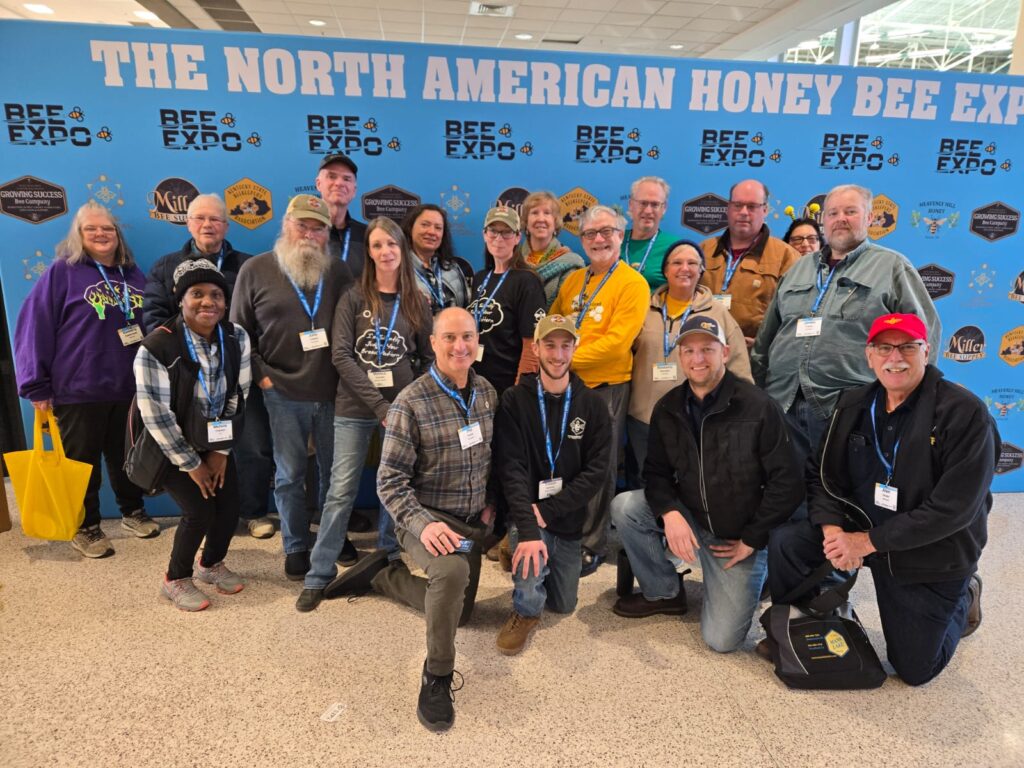
Maryland State Beekeepers at the North American Honey Bee Expo January is a big month for beekeeping conventions, if only because Marylanders cannot do much with the bees themselves for a while. Maryland beekeepers were present at meetings on both sides of the country as delegates, attendees, competitors, networkers, customers, and apiculturists intent on learning what they can to help their bees and grow their understanding and skills.
The American Beekeeping Federation (ABF) Conference, including the Apiary Inspectors of America meeting, has been a staple for about 80 years. Maryland is a State Member of ABF, and has two delegate slots within the organization. At present, MSBA has nominated Lisa Marie Ghezzi and Fred Smith to represent us.
The North American Honey Bee Expo (NAHBE) has been around a comparatively short time (in a couple of iterations), since the summer of 2019. NAHBE has nonetheless become the largest beekeeping conference in North America, welcoming more than 3,600 participants from January 2-4, 2025.
About the American Beekeeping Federation Conference and Activities
ABF held its 2025 conference in Reno, Nevada January 7-11. Among many excellent speakers and topics over the five days, industry luminaries Dr. Marla Spivak (University of Minnesota), Dr. Scott McArt (Cornell University) and Dr. Geoff Williams (Auburn University) addressed important topics on varroa management, neonicotinoid research and understanding Tropilaelaps mites. ABF’s 2026 conference will be held in Mobile, Alabama.
ABF is working on your behalf, in the interest of all beekeepers, large and small, and those in association with the beekeeping industry to ensure the future of the honey bee. Many critical issues face all beekeepers today – pollinator health, forage decline in quality and quantity, pesticide exposure, adulterated honey, pests of the hive. ABF addresses each of these challenges through its advocacy of and/or funding for:
- rebuilding and developing new foraging habitat to promote healthy honey bees and honey production.
- surveys to document the loss rates of managed honey bee colonies in the US over time.
- developing better methods of detecting adulterated honey and improving enforcement of the law.
- encouraging USDA-ARS to fill all currently funded positions at the ARS honey bee labs.
- increasing emphasis on honey bee crop pollination research by government agencies.
- continuing research to understand best methods for beekeepers to detect and manage the potential future threat of the Tropilaelaps mite.
- and more.
Most recently, with the severe and sudden losses of managed honey bees across the nation, ABF is working collaboratively with Project Apis m, the American Honey Producers Association, apiculture extension programs and commercial beekeepers to collect information and assess losses to determine next steps. To learn more about what ABF is doing for you and how you can get involved, please ask your Maryland Delegates Lisa Marie Ghezzi and Fred Smith, or visit www.ABFnet.org.
Maryland Champions
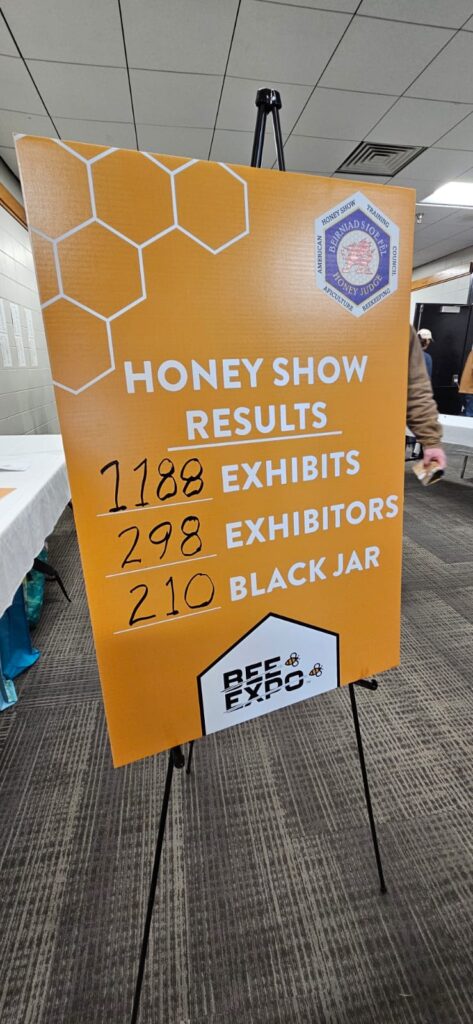
Both the ABF and NAHBE honey shows represent a national level of competition for participants, and MSBA members brought home an impressive share of a rainbow of ribbons!
ABF's competition is known as The American Honey Show. Lisa Ghezzi, one of our ABF delegates, brought home a blue ribbon for Water White Honey!
NAHBE uses judges and criteria from the American Honey Show Training Council, based on but evolved from the Welsh honey judging system. This year's show included almost 1200 exhibits and relied upon more than 70 trained judges.
Winners included:
- Marion Iannuzzi: 3rd-Honey Candy
- Kim Mehalick: 2nd-Infused Honey, non-spicy; 3rd-Traditional Mead, Dry; 3rd-Honey Confections; 4th-Honey Breads, Loaves; 4th-Traditional Mead, Sweet; 5th-Honey Cake, Cupcakes and Petit Fours
- Monica Schmitt: 1st-Beeswax Block, Standard
- Francis Stepanek: 1st-Pollen; 4th-Beekeeping Gadgets; 6th-Artwork Related to Beekeeping
- Valerie Wampler: 1st-Honey Candy; 2nd-Beeswax Block, Large; 2nd-Needlecraft; 2nd-Honey Cake, Cupcakes and Petits Fours; 3rd-Beeswax Candles, Molded Ornamental; 5th-Beeswax Candles, Floating; 5th-Honey Breads, Rolls and Muffins;
- Rob Yochem: 6th-Novice Extracted Honey
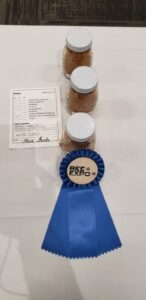
Francis Stepanek won blue for pollen 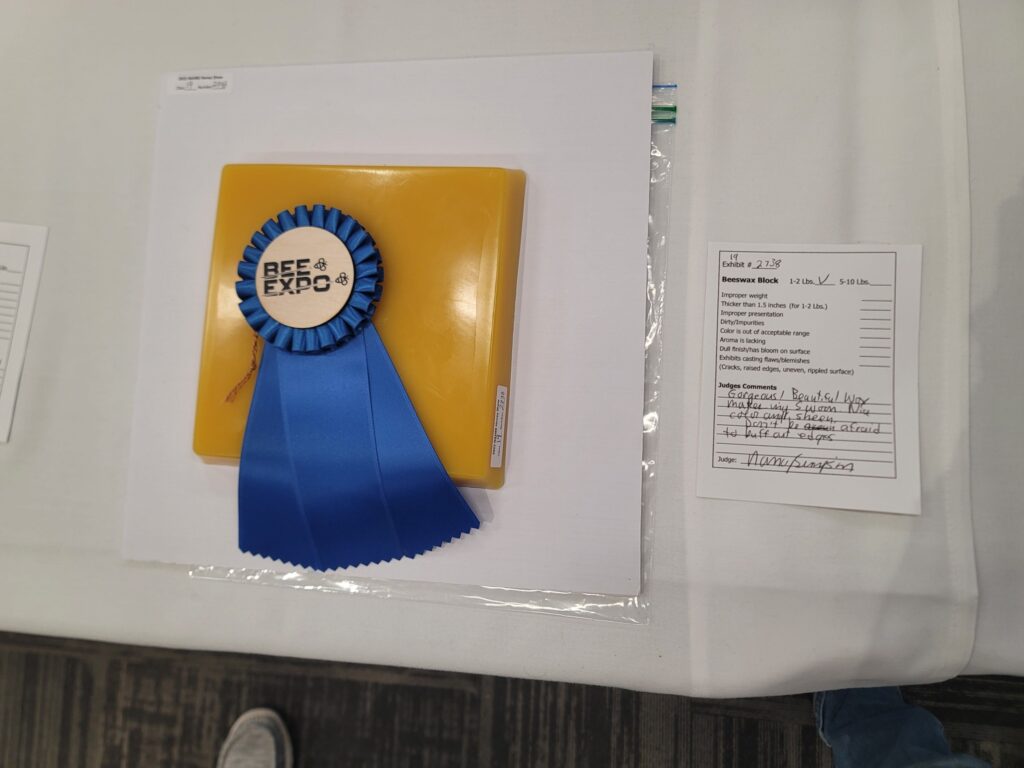
Monica Schmitt won first in Beeswax Block (Standard) [Return to February 2025 Beeline newsletter]
MSBA Awards and Prizes
- MSBA Recognitions and Awards, 2024
Each year, MSBA presents two special awards to members of our association who make important contributions to beekeeping education, in two different ways. The George Imirie Education Award includes a monetary prize, and goes to beekeeper(s) who have made a contribution to the education of the Maryland apiculture community. The Free State Beekeeper Citizenship award faces into the community around us: it celebrates efforts to education and inform the public about beekeeping, its contributions, and its importance.
Monica Schmitt was the 2024 winner of the Imirie Award. Though the non-profit she founded, Mission Believe, has been recognized in the past, Monica has personally continued to work with and support MSBA educational programs, including the upcoming Beeswax Workshop on March 8. 2025.
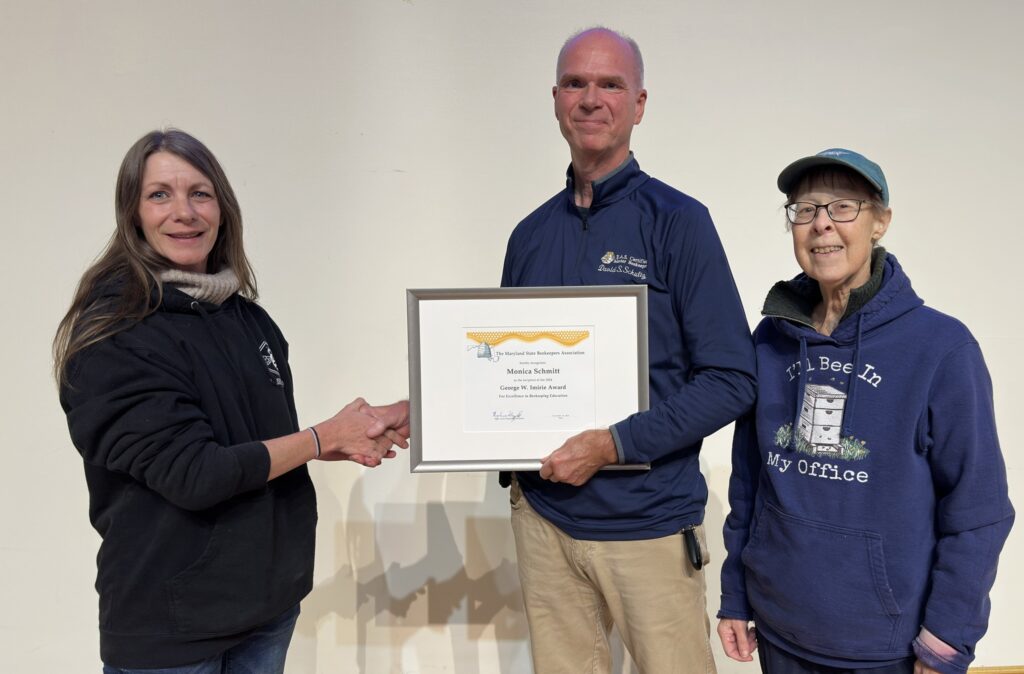
EAS Master Beekeepers Phil Frank and Dr. Frank Linton received the Free State Beekeeper Citizenship Award for their immensely helpful and exciting book, Hive Tour: The Insider's Guide to Honey Bees.
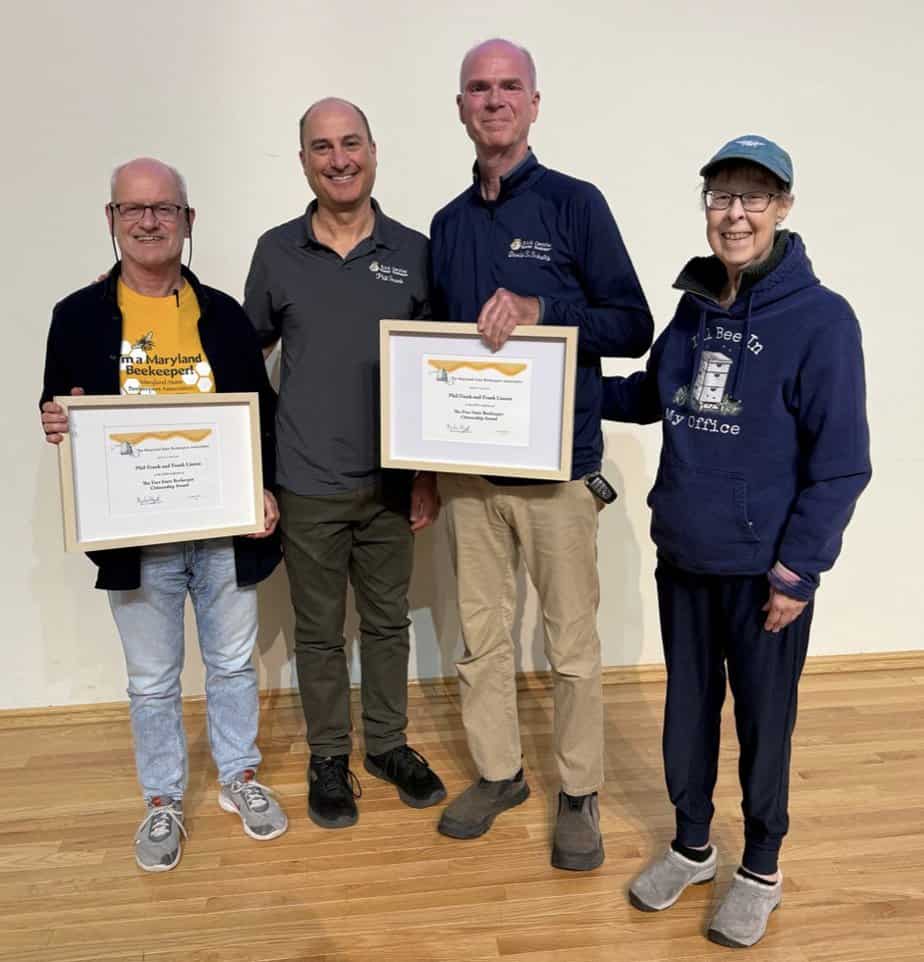
MSBA'a annual honey show also took place last November, and there were winners there, too! Twenty-four exhibitors entered 89 exhibits, and 86 won a premium! A total of $796 was awarded. Major recognitions went to:
- Division I, Hive Products: Robert Yochem
- Division II, Arts and Crafts: Ashleigh Knox
- Division III, Arts and Crafts: Kim Mehalick
- John V. Lindner Best in Show Award: Ashleigh Knox
The Barton Smith Award for Best Club Showing went to Carroll County (again!)
[Return to February 2025 Beeline newsletter]
Award Winning Recipes on MSBA Website
- Award Winning Honey Recipes from MSBA
Thanks to the inspiration and hard work of one inspired volunteer, the MSBA website now has a growing collection of recipes using local honey (including recent award winners at our own and national honey shows) for you to browse, print and prepare in your own home! Each page includes a link to local sources of honey: MSBA members who have indicated that they have honey for sale are automatically included on the list!
In 2024, while helping at MSBA's annual honey show, EAS Master Beekeeper Valerie Wampler had an inspiration: show contestants are required to submit recipes with their entries, but what was happening to the recipes after that? She learned that the recipes are saved, but that they were not in use. And she has come up with an answer: share them digitally along with sources of Maryland honey.
Honey show recipes are meant to be part of the educational process of holding a competition, awarding prizes, and providing feedback. They are literally meant to be shared, and provide a powerful marketing and educational tool to reach the communities surrounding Free State beekeepers.
Valerie had also found 1980s era cookbooks, "Honey Recipes from Maryland Kitchens" and "More Honey Recipes From Maryland Kitchens," and wondered whether local beekeepers and honey fans had access to these tasty items, either! It has been over 40 years since these titles were published, and they are now rare and not accessible to the general public.
While MSBA is not in a position to publish hard copy books (the older titles mentioned here were produced in cooperation with an agricultural marketing project at the Maryland Department of Agriculture), our website now has an index and printable recipe cards for you to use at your convenience!
We already have about 50 recipes online (enough to fill a cookbook), with more being added each month. The recipes range from pies to lotions, cookies to furniture polish. If you have a recipe to submit, please email it to beeline@mdbeekeepers.org, and we will share it with Valerie and the website team.
[Return to February 2025 Beeline newsletter]
MSBA License Plates are Back!
It's Registration Time!
- Apiary Inspector Letter: It’s Time to Register Your Apiary!
In case you missed it, here is this winter's reminder to register your colonies and to support the Apiary Inspectors Fund!
You can easily download the registration form from the Maryland Department of Agriculture, and we have simplified donations right here on our website! Everything you give to the Apiary Inspectors Fund here goes to the program!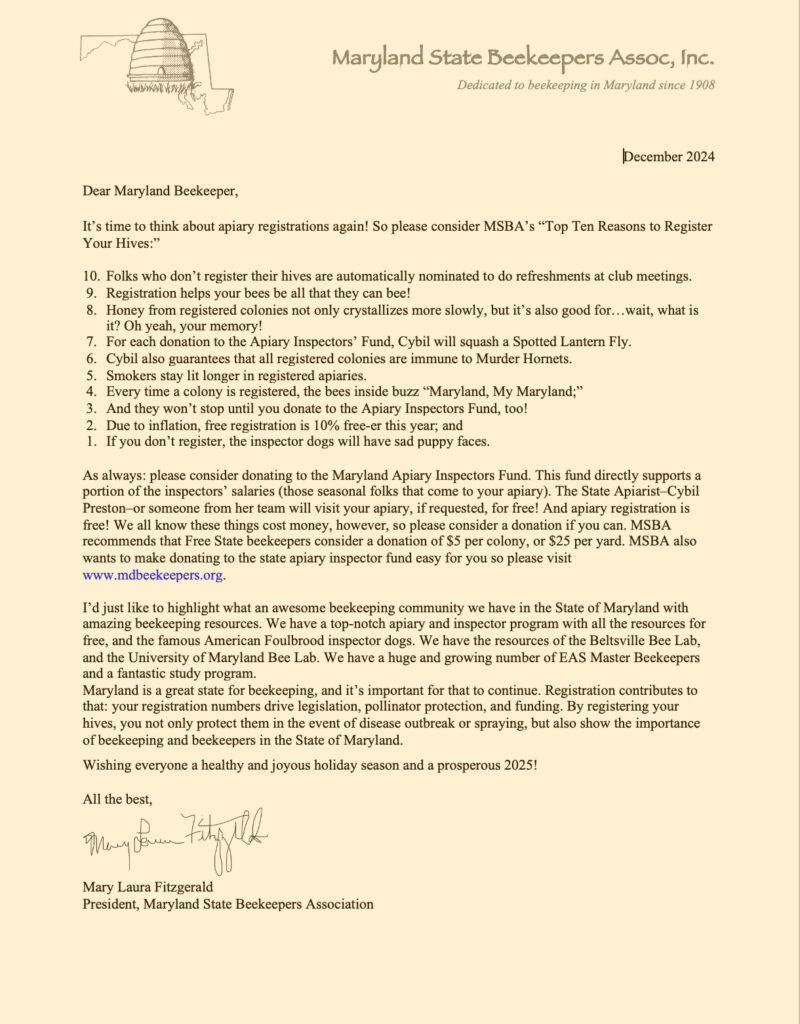
[Return to February 2025 Beeline newsletter]
Beekeepers' Gallery
- Beekeepers Image Gallery, February 2025
Click to enlarge!
Please celebrate, with us, the observing eyes and extraordinary photographic skills of Maryland Beekeepers. The Beeline is honored to feature your photos, artwork, and other images, with all rights and credit reserved to you! Please submit your gallery contributions to beeline@mdbeekeepers.org!
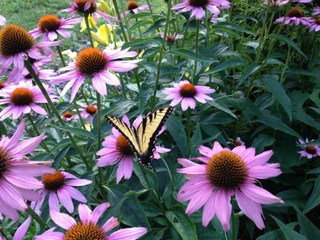
From Candee Van Iderstine
- Important! New meeting format, directions, parking

